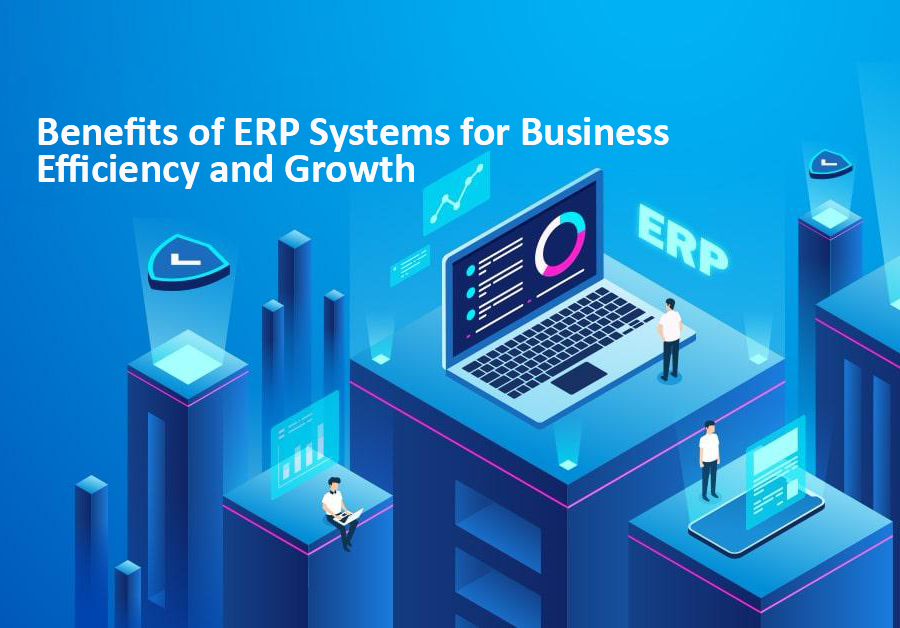Enterprise Resource Planning (ERP) systems can significantly benefit businesses in several ways. Here are some ways ERP can help your business:
Streamlined Operations: ERP integrates various business functions and processes into a single system, allowing for streamlined operations. It eliminates data silos and enables smooth flow of information across departments, improving communication and collaboration.
Improved Efficiency: ERP automates repetitive tasks, such as data entry, inventory management, and financial reporting, reducing manual errors and saving time. It also provides real-time insights into business processes, enabling informed decision-making and efficient resource allocation.
Enhanced Productivity: With ERP, employees can access centralized data and information, facilitating better coordination and productivity. It eliminates redundant tasks and enables employees to focus on more value-added activities, thereby improving overall efficiency.
Better Data Management: ERP acts as a centralized database, consolidating data from various departments. It ensures data integrity, security, and availability. Businesses can generate accurate reports, analyze trends, and make data-driven decisions to optimize operations and performance.
Inventory Optimization: ERP systems provide real-time visibility into inventory levels, helping businesses manage their supply chain efficiently. By monitoring inventory levels, tracking demand, and automating replenishment processes, businesses can avoid stockouts, reduce carrying costs, and optimize inventory levels.
Enhanced Customer Service: ERP enables businesses to track customer interactions, manage sales, and handle customer inquiries more effectively. With a unified view of customer data, businesses can provide personalized experiences, resolve issues promptly, and improve overall customer satisfaction.
Regulatory Compliance: ERP systems often include features to support compliance with industry regulations and standards. They can assist with financial reporting, taxation, audit trails, and other compliance-related requirements, reducing the risk of non-compliance and associated penalties.
Scalability and Growth: ERP systems are designed to accommodate the growth of businesses. As companies expand, ERP can easily scale up to handle increased transactions, users, and data volumes, providing a robust foundation for future growth.
Cost Savings: While implementing an ERP system incurs upfront costs, it can lead to significant cost savings in the long run. By automating processes, reducing manual errors, optimizing inventory, and improving efficiency, businesses can lower operational costs, improve profitability, and achieve a return on investment.
It’s important to note that the benefits of ERP can vary depending on the specific needs and implementation of the system. It is crucial to carefully evaluate and choose an ERP solution that aligns with your business requirements and goals.


